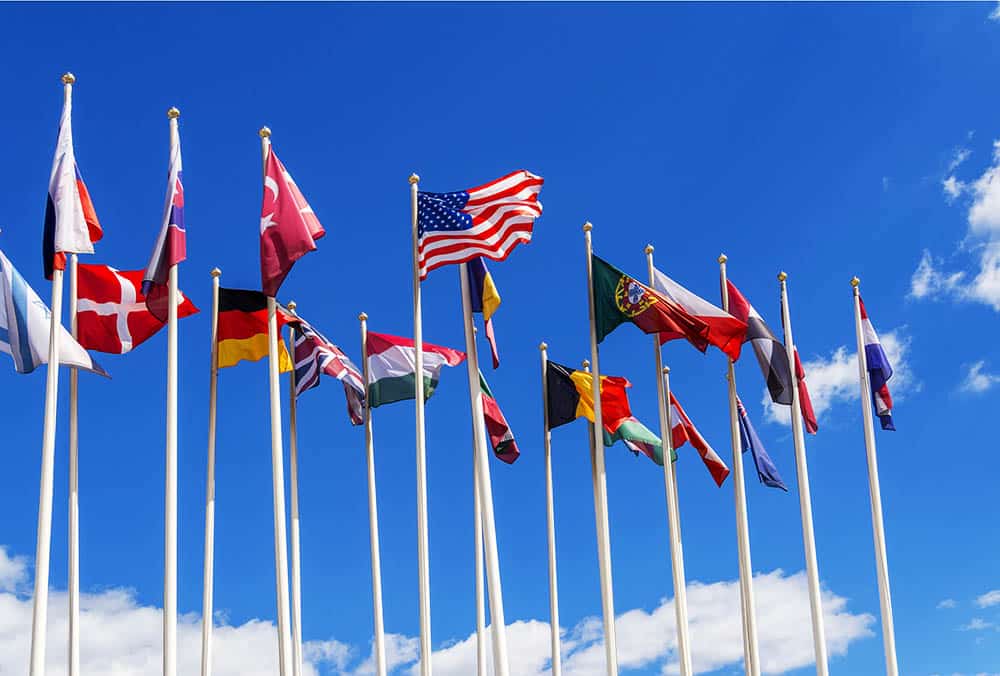The world as we know it is divided. Not only do we see physical barriers in the form of walls, fences, and borders, but there are also invisible barriers that separate the haves from the have-nots. Global inequality is a reality that affects billions of people around the world, and it is a moral imperative that we address this issue. In this article, we will explore why breaking down the barriers of international inequality is necessary and how we can work towards a more equitable future.
The Statistics
The statistics on global inequality are staggering. According to Oxfam, in 2020, the world’s 2,153 billionaires had more wealth than the 4.6 billion people who make up 60 percent of the planet’s population. Additionally, the wealth of the world’s top 1 percent is more than twice the total wealth of the bottom 90 percent. These numbers are shocking and point to a massive wealth gap that exists in the world today. What is even more concerning is that this gap is widening, with the richest 1 percent increasing their wealth by 45 percent in the past decade, while the bottom 50 percent saw no increase at all.
The Consequences
Global inequality has a wide range of consequences that affect not only those who are directly impacted but also society as a whole. One of the most significant consequences is poverty. Those who do not have access to basic resources such as clean water, food, education, and healthcare are trapped in a cycle of poverty that affects not only their present but also their future. Poverty is linked to a range of negative outcomes, including poor health, low economic growth, and social instability.
In addition to poverty, inequality also contributes to the marginalization of certain groups such as women, people of color, and those living in rural areas. These groups often face discrimination and are denied equal opportunities in education, employment, and healthcare. This marginalization not only perpetuates inequality but also undermines the principles of democracy and human rights.
Furthermore, global inequality also has environmental consequences. The wealthiest countries consume the most resources and produce the most waste, contributing to climate change and other environmental problems. Meanwhile, those in impoverished countries who have contributed the least to these problems are often the most impacted by them.
The Solutions
Addressing global inequality is a complex issue that requires a multifaceted approach. There are several steps that we can take towards achieving a more equitable future.
Education is a crucial tool in breaking down barriers, providing opportunities, and addressing the root causes of inequality. Governments and NGOs can work towards providing free and high-quality education to all people, regardless of their socioeconomic status or location. Education can also play a significant role in promoting gender equality and empowering marginalized groups.
Another crucial component of addressing inequality is reducing poverty. Governments should work towards investing in social services such as healthcare and welfare programs to support those in poverty. Additionally, ensuring fair wages, labor rights, and access to economic opportunities can help break the cycle of poverty.
Another solution is tackling corruption. Corruption perpetuates inequality by enabling the wealthy and powerful to maintain their status while denying basic resources and rights to others. Governments and international institutions need to work towards promoting transparency and accountability in all areas of society to combat corruption.
Finally, addressing environmental issues is also a crucial component of addressing inequality. The wealthiest countries must take responsibility for their contributions to environmental problems and work towards reducing their carbon footprint. Governments can promote sustainable practices and work towards reducing waste and emissions.
Conclusion
In conclusion, addressing global inequality is a moral imperative that requires action from individuals, governments, and international institutions. While it may seem like an insurmountable issue, taking small steps towards reducing poverty, promoting education, combating corruption, and addressing environmental issues can make a significant impact. We must break down the barriers that separate us and work towards a more equitable future for all. Only then can we realize the full potential of humanity and create a world that is just and fair for generations to come.

Deja una respuesta